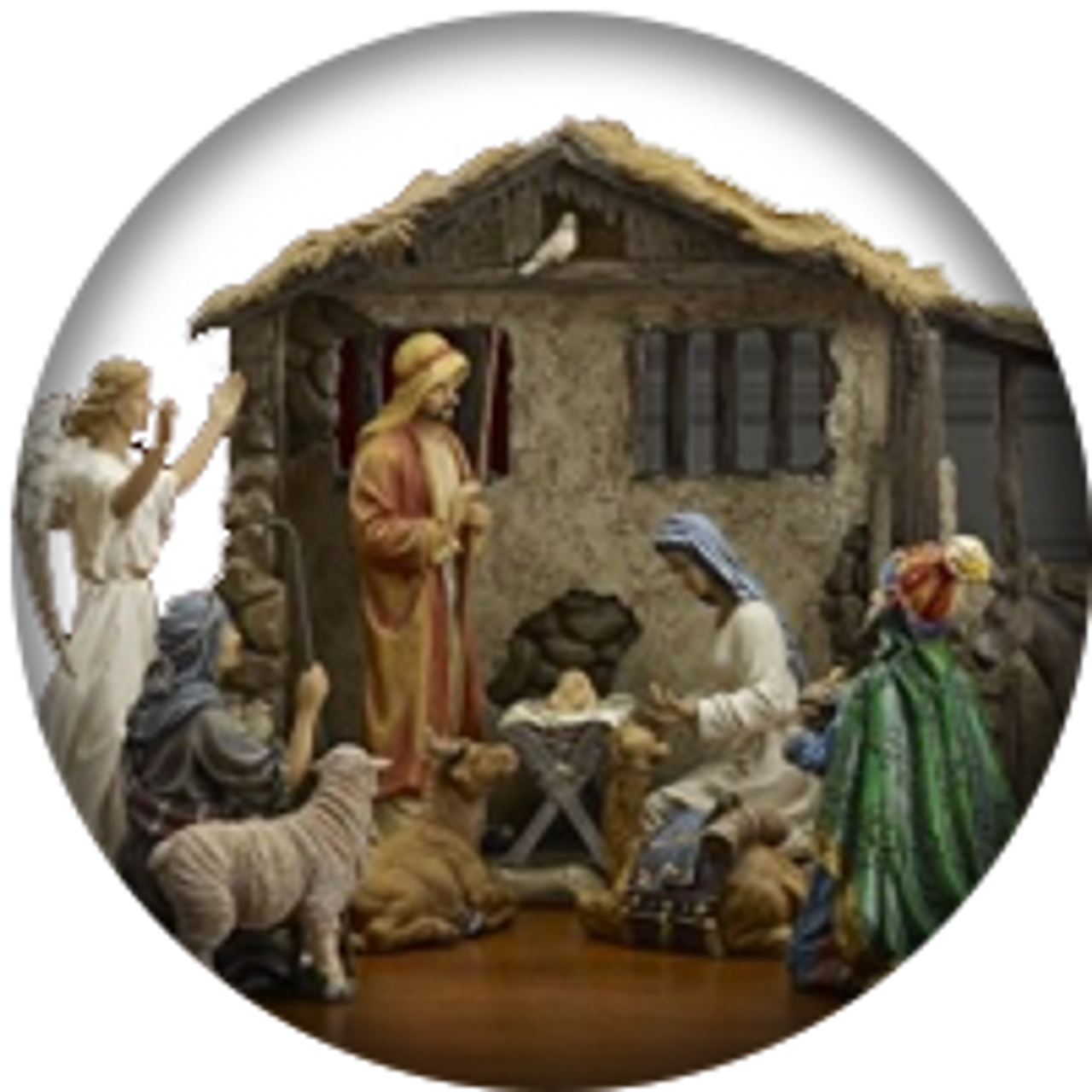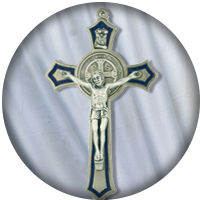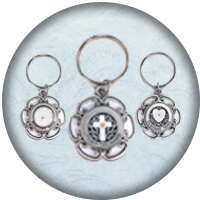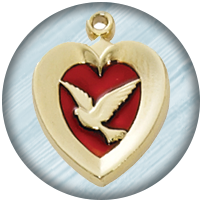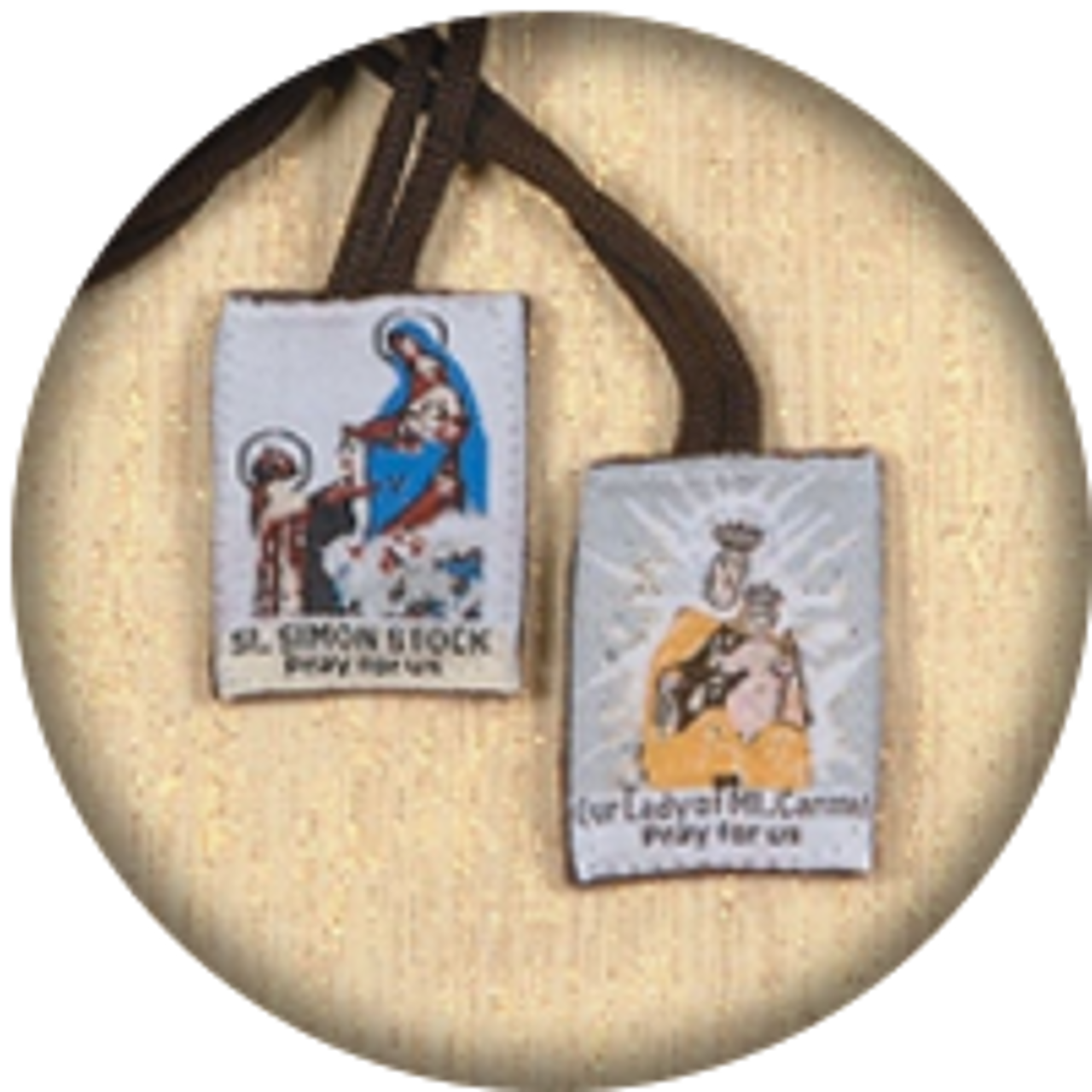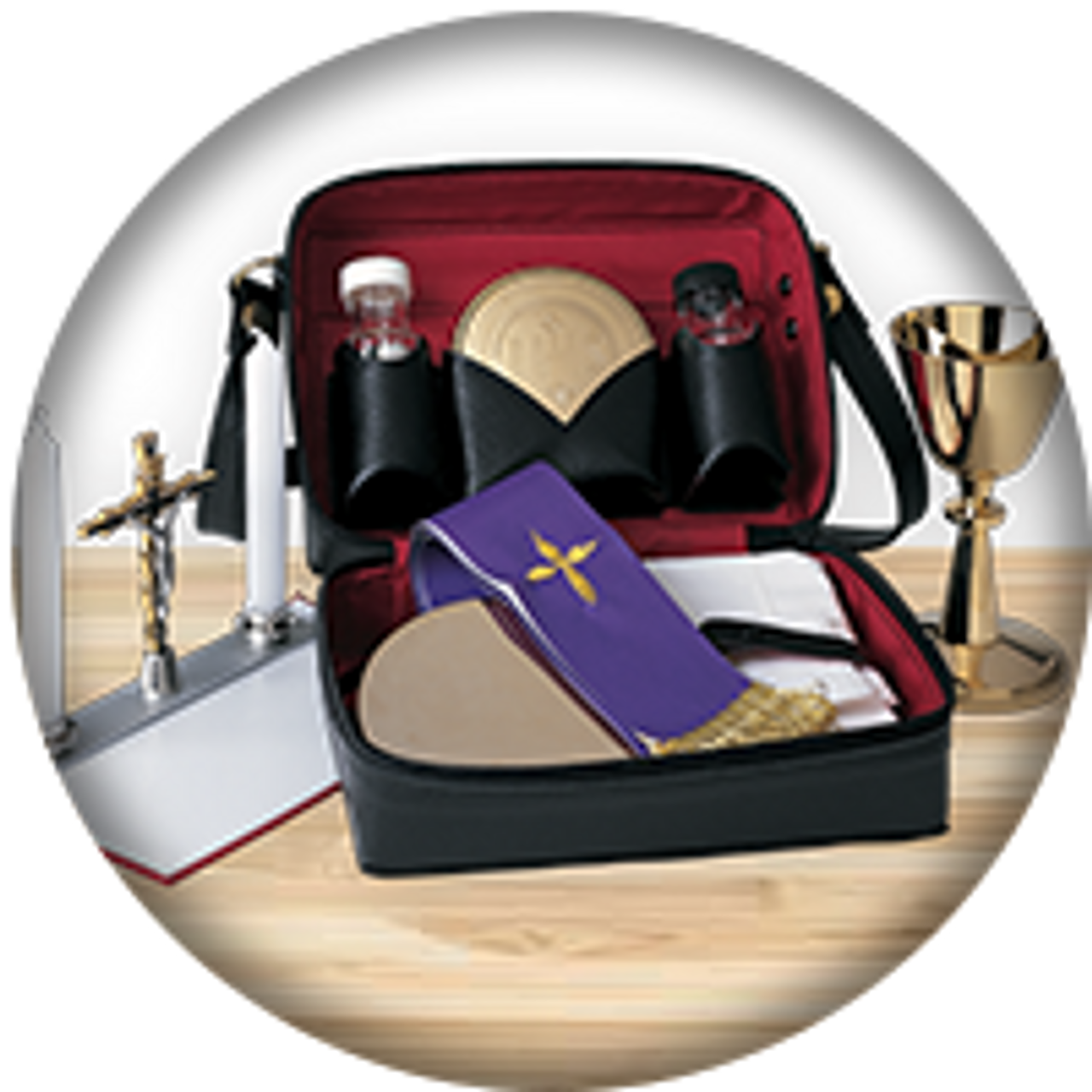THEN CAME PENTECOST: THE PROMISE, THE ROOTS AND WHAT HAPPENED, Part I in the Power of Pentecost series
Kathy Boh on 14th May 2020
The Power of Pentecost series, Part I
THEN CAME PENTECOST:
THE PROMISE, THE ROOTS AND WHAT HAPPENED
As the Seventh Sunday of Easter celebrates the Ascension of the Lord on Sunday, May 24th, 2020, we continue to look toward Pentecost Sunday celebrated 7 days later, on May 31st. Our series takes an expansive view of that feast and its many repercussions in our lives.
In this series, we will be looking at the Holy Spirit's power manifested, and the difference that Pentecost makes. That includes effects, repercussions, fruit and gifts. He enables us to go beyond human limits, and fulfill in God's chosen ways being called and being sent.
Later, we will explore walking with the Holy Spirit, how to respond, letting Him speak, God’s glory, the Holy Spirit now, the days ahead, and a Pentecost way of life.
Before we finish, we will look at some life-giving perspectives and how the Holy Spirit can bring scripture to life.
PENTECOST: OLD TESTAMENT ROOTS
The name “Pentecost” was given to this event in connection with a biblical Jewish celebration— the feast of "Weeks", which was 7 weeks plus 1 day after Passover. In the New Testament it was called "Pentecost", and was being commemorated at the same time as the traditional Jewish feast. This harvest feast was the reason why so many Jews were in Jerusalem, which set the stage for Peter to give his impactful “Pentecost” speech to so many people. “Pent” indicates “5” in Greek, and the feast day occurred 50 days after another important Jewish feast, "Pesach". This feast was the “first fruits” of the earlier, barley grain harvest, at "Passover" time.
Our feast of Pentecost corresponds in timing with the Jewish festival of “Shavuot”. Shavuot marks the commemoration of God’s gift of the law to Moses on Mt Sinai. In Deuteronomy 16, we are told that it is, basically, 50 days after the first day of Passover, "Pesach", which marks the Israelite's Exodus from Egypt. Pentecost/Shavuot marks the beginning, or first-fruits, of the wheat harvest.
Giving God the "best" and the "first" was a common theme and practice, even according to law, for the Jews. This applied to offerings, tithes, and sacrificed animals. It was also a life lesson in keeping with the first commandment. The first of (many things) was dedicated to the Lord—acting out the choice to put Him first in all things, and in all ways, above everything.
The Jewish feast of Pentecost can be found several times in the Pentateuch—the first 5 books of the Old Testament—in Exodus, Leviticus, Numbers and Deuteronomy. Jews were required to go to Jerusalem to celebrate this feast. Consequently, many different pilgrims, speaking various languages, would be found visiting in Judea—as we see in Acts on the feast of Pentecost.
How fitting it is that the first harvest of souls was the result of Peter’s Spirit-led address, for Jesus used “wheat” and fields that were “ripe for harvest” as an analogy for souls. Marking that grain harvest time, Jesus was the “grain of wheat” that went into the ground and died.
“Truly, truly, I say to you, unless a grain of wheat falls into the earth and dies, it remains alone; but if it dies, it bears much fruit.” [Jn 12:24] We who believe and are saved are that fruit—the fruit—the harvest—of His saving act. His dying as the Son of (but co-equal with and co-existent with) God (the Father and God the Holy Spirit) to gain us our salvation also brought us the fruit of sonship (and daughterhood) with the Father. It is quite fitting that our “Pentecost” is 50 days after the death and resurrection of Jesus Christ, the First Fruit of our own coming resurrection [I Cor 15:23].
THE GRAIN OF WHEAT DIES… FOR THE HARVEST
As we mentioned above, Jesus is that grain of wheat that fell into the ground for us. Jesus' last Passover was the beginning of the Paschal mystery—the fullness of His Passion, death, burial and resurrection—and all of its “salvation” implications. For our good and gracious God paid a very high price to send His Son to die an excruciating death to pay the debt for our deliverance from death, hell and the grave through forgiveness of sin, deliverance from enemy oppression, and a promised resurrection and eternal life—lived and demonstrated by Jesus, and personally witnessed by many.
This same Jesus ascended to the right hand of the Father—with that very same resurrected body that showed the scars of His crucifixion. This gloriously resurrected human body of Jesus Christ sits at the Father’s right hand.
Even before the human body was promised its own glorious resurrection in Jesus Christ, the God of all creation (and of the vast universe that some like to mistakenly call “god”), declared that the human body was made “in His image and likeness” and was “good.” The Bible tells us that it is not clear what ours will be like, but we have some hints in observing comments about Jesus, in the time before His Ascension. In His resurrected body, he could appear among His disciples without going through a door on Easter Sunday. He also had scars marking His wounds. Remember Jesus asking “doubting” Thomas to put his hand in His side? Again, Jesus is the first-fruit of our own, coming, promised resurrection.
Jesus knew human nature. He knew our needs and our lack. “But Jesus… did not need anyone to testify about human nature. He himself understood it well.” [Jn2:24-25] He knew and saw the need for the Father’s plan to send the Holy Spirit—the “Helper”.
PENTECOST: THE AWAITED, PROMISED DAY
Jesus told us of God the Father’s plan to send the Spirit to be with us after Jesus returned to heaven. He spoke extensively—as largely recorded in John’s gospel—of the coming of the Holy Spirit. Both the Father and Jesus gladly promised and proclaimed that they would send the Holy Spirit.
“ …The Advocate, the Holy Spirit that the Father will send in my name—He will teach you everything and remind you of all I have told you.” [John 14:26] …"He will guide you to all truth…and will declare to you the things that are coming.” [Jn 16:13]
27b “ Do not let your hearts be troubled or afraid. 28a You heard me tell you, ‘I am going away and I will come back to you.’… 29 And now I have told you this before this happens, so that when it happens you may believe.” [Jn14:27-29]
“When the Advocate comes whom I will send you from the Father, the Spirit of truth that proceeds from the Father, he will testify to me…” [Jn 15:26] In fact, Jesus said, “If I do not go”, I cannot send the Holy Spirit. [Jn 16:7]
Jn. 16:7 But I tell you the truth, it is better for you that I go. For if I do not go, the Advocate will not come to you. But if I go, I will send him to you… 12 I have much more to tell you, but you cannot bear it now. 13 But when he comes, the spirit of truth, he will guide you to all truth. He will not speak on his own, but he will speak what he hears, and will declare to you the things that are coming. 14 He will glorify me, because he will take from what is mine and declare it to you. 15 Everything that the Father has is mine; for this reason I told you that he will take from what is mine and declare it to you.
In studying the scriptures on Jesus’ words concerning the Holy Spirit, it is astounding just how much Jesus sought to prepare and encourage the disciples. He wanted to comfort them regarding His leaving and the Holy Spirit’s coming—for the Holy Spirit would come in His manifested presence, comfort and guidance.
Jn 16:19b “…In a little while, you will not see me, and again…you will… 20 Amen, amen, I say to you, you will weep and mourn, while the world rejoices, you will grieve, but your grief will become joy. 21 When a woman is in labor, she is in anguish because her hour has arrived, but when she has given birth to a child, she no longer remembers the pain because of her joy that a child has been born into the world. 22 So you also are now in anguish.
But I will see you again, and your hearts will rejoice, and no one will take your joy away from you. 23 On that day you will not question me about anything. Amen, amen, I say to you, whatever you ask the Father in my name he will give you. 24 Until now you have not asked anything in my name; ask and you will receive so that your joy may be complete… 26 On that day you will ask in my name, and I do not tell you that I will ask the Father for you. 27 For the Father himself loves you, because you have loved me and have come to believe that I came from God. 28 I came from the Father and have come into the world. Now I am leaving the world and going back to the Father.”
WASN’T JESUS ENOUGH? WHY SEND THE HOLY SPIRIT?
A new birth… A new covenant… A Savior Who paid a forever, indescribably horrific price for His brothers and sisters to come into fellowship with His— and now our—Father. The apostles heard the teaching—and saw and heard all the “in-between” actions and comments of Jesus. John said, “There are also many other things that Jesus did, but if these were to be described individually, I do not think the whole world would contain the books that would be written.” [Jn 21:25]
Let’s think about that. That’s a whole lot of actions… not to mention all His words accompanying all those actions. And… even though Jesus breathed on them on Resurrection Day and said, “Receive the Holy Spirit…” Peter still was not “ready” to publicly proclaim Christ. Neither were the rest of them. Neither would we have been… Because it would take more…
“While meeting with them” [blog comment: during the 40 days after the Resurrection] “he enjoined them not to depart from Jerusalem, but to wait for the ‘promise of the Father’ about which you have heard me speak, for John baptized with water, but in a few days you will be baptized with the Holy Spirit.” [Acts 1: 3-5]
There seems to be a difference between simply “receiving” the Holy Spirit—as on Resurrection Day, when Jesus breathed on them and said those words to them—and being “filled” with the Holy Spirit. In Jesus’ case, “Heaven was opened… the Holy Spirit descended on him in bodily form like a dove…” [Luke 4:1; Luke 3:22] The physical (like bodily) form for the disciples was wind and fire. For Jesus it was a dove, with the words from the Father, saying, “You are my beloved son; with you I am well pleased.” The Holy Spirit— as He has throughout Bible history, and history since that time— continues to manifest in various ways, even with different signs. It’s one more way we need to let God be God, and realize that our Creator God is precise and often creative in His answers and actions. It is difficult to find a miracle that He performed in exactly the same way as another. An example would be His healing the blind.
If Jesus’ instruction, life and example were “enough”… If His breathing on them was enough, then Peter could have given his Pentecost speech after the Resurrection. He could have done it after he was chosen as leader. But he needed the power to fill the new role, and he needed a brand new boldness in the faith. He needed a more fluid tongue, greater confidence. It was Jesus, Himself, Who told His disciples to “wait”. He knew them. He knew human nature. He wanted to see them get more help.
Are we minimizing the power, love and mission of Jesus? What He said and could do… and did? No. Never. Are we recognizing His humility, forbearance and love? Yes.
Jesus had told the Pharisees, “You [scholars of the law] impose on people [weigh men down] with burdens that are hard to carry, but you yourselves do not lift a finger to help them.” [Luke 11:46] Jesus acted in quite the reverse way. He had clearly stated, “My yoke is easy and my burden light.” [Mt 11:30] Jesus said that the Pharisee leaders "did not enter into the kingdom of heaven themselves", but they would "shut off the kingdom of heaven from [other] people" ... "Nor [would they] allow those who were entering to go in." [Mt 23:13]
Jesus' heart moved in a different direction. He had the Good Shepherd’s care, and He had a mother-hen heart. “Jerusalem, Jerusalem, how often I have longed to gather your children together as a hen gathers her chicks under her wings, and you were not willing.” [Mt 23:37]
There are those who are accustomed to some more demanding expectations and less helpful ways. We may be able to imagine—instead of the gentle Shepherd’s promise—a potentially raging speech that could have been aimed at Peter or His other followers, that could begin with: “After all this time I have been with you: teaching, preaching, working miracles.After all you have seen and witnessed and heard me say. You still have not believed enough? You still have not taken action! You still can’t ‘just DO IT?’”
Jesus humbly—humbly and without “ego” arrogance—continually sought to fit into His Father’s plans. He also knew the power that the Holy Spirit had to strengthen and work from within, in one who would seek and receive His help. Jesus sought to give His followers “an easy yoke and a light burden”, in love and compassion toward them.
He wanted to see them receive more help; a strengthening support; a greater capacity after being filled with the gifts that He knew the Holy Spirit could give. He realized what was both necessary and missing in their experience and call—an encounter with, and the receiving of, the manifest power of the Holy Spirit working in their lives.
“Take My yoke upon you and learn of Me, for I am gentle (meek) and humble (lowly) in heart, and you will find rest (relief and ease and refreshment and recreation and blessed quiet) for your souls.” (Mt 11:29 Amplified Classic)
So, if Jesus, “gentle and humble of heart”, lovingly thought that His disciples needed the Holy Spirit in order to speak and act in His footsteps, How much more do you think that we modern disciples might need every bit of the power of the Holy Spirit in our own lives?
PENTECOST COMES
“When the day of Pentecost had come, they were all together in one place. And suddenly there came from heaven a noise like a violent rushing wind, and it filled the whole house where they were sitting. And there appeared to them tongues as of fire distributing themselves, and they rested on each one of them. And they were all filled with the Holy Spirit and began to speak with other tongues, as the Spirit was giving them utterance.
Now there were Jews living in Jerusalem, devout men from every nation under heaven. And when this sound occurred, the crowd came together, and were bewildered because each one of them was hearing them speak in his own language. They were amazed and astonished, saying, “Why, are not all these who are speaking Galileans? And how is it that we each hear them in our own language to which we were born? Parthians and Medes and Elamites, and residents of Mesopotamia, Judea and Cappadocia, Pontus and Asia, Phrygia and Pamphylia, Egypt and the districts of Libya around Cyrene, and visitors from Rome, both Jews and proselytes, Cretans and Arabs—we hear them in our own tongues speaking of the mighty deeds of God. And they all continued in amazement and great perplexity, saying to one another, “What does this mean?” But others were mocking and saying, “They are full of sweet wine.” [Acts 2:1-13, NASB]
This scriptural account describes very well the real event that happened in Jerusalem to those disciples who took Jesus’ words to heart and waited those long days for the coming of the Holy Spirit.
This above passage is actually quite remarkable. It is full of precise detail, including the languages of the various pilgrim visitors to Jerusalem who were hearing these disciples speak in their own native tongue. It is truly astonishing what happened that day. And it didn’t end there—not for the disciples, nor for us. We continue with Peter’s address to the crowds that gathered around them.
FISHERMAN TURNED ELOQUENT COMMUNICATOR
Peter was the apostle who denied Jesus—publicly, adamantly, repeatedly—three times. He was the apostle whom Jesus—also three times—asked, “Do you love me more than these?” [Jn 21:15-17] The “more than these” were the other disciples. Jesus was not one to incite jealousy or competition among His followers. He was, however, sensitive to Peter’s need for restoration and a clean slate—a new start. So Jesus lovingly, gently asked him that question (three times), to perhaps enable him to affirm clearly and verbally a different answer than the one given three times during Jesus' Passion.
This (presumably) minimally educated, new leader of an outlawed, persecuted band of believers living outside the realm of other established religious groups during those Roman times—who had recently vacillated in courage and in his profession of faith—now stood up and addressed a large throng of passers-by in the very city where his own religious leaders had crucified Jesus.
PETER ADDRESSES THE CROWD
“But Peter, taking his stand with the eleven, raised his voice and declared to them: “Men of Judea and all you who live in Jerusalem, let this be known to you and give heed to my words. For these men are not drunk, as you suppose, for it is only the third hour of the day; but this is what was spoken of through the prophet Joel:
‘And it shall be in the last days,’ God says,’
‘That I will pour forth of My Spirit on all mankind;
And your sons and your daughters shall prophesy,
And your young men shall see visions,
And your old men shall dream dreams;
Even on My bond slaves, both men and women,
I will in those days pour forth of My Spirit
And they shall prophesy. And I will grant wonders
in the sky above and on the earth below,
Blood, and fire, and vapor of smoke. The sun will be
turned into darkness, and the moon into blood,
Before the great and glorious day of the Lord shall come.
And it shall be that everyone who calls on the name of the Lord will be saved.’”
“Men of Israel, listen to these words: Jesus the Nazarene, a man attested to you by God with miracles and wonders and signs which God performed through Him in your midst, just as you yourselves know—this Man, delivered over by the predetermined plan and foreknowledge of God, you nailed to a cross by the hands of godless men and put Him to death. But God raised Him up again, putting an end to the agony of death, since it was impossible for Him to be held in its power. For David says of Him,
‘I saw the Lord always in my presence;
For He is at my right hand, so that I will not be
shaken. Therefore my heart was glad and my
tongue exulted…'
This Jesus God raised up again, to which we are all witness.
Therefore let all the house of Israel know for certain that God has made Him both Lord and Christ—this Jesus whom you crucified.” [Acts 2:1-13, NASB]
NEW BELIEVERS
Peter's speech had more impact than anyone could have imagined.
The crowd of unsuspecting listeners was immediately overwhelmed by his words. They were moved by the Holy Spirit, just as Peter himself was full of the Holy Spirit. God's power was operating in, through and around him. Listeners were touched deeply in their hearts and spirits.
“Now when they heard this, they were pierced to the heart, and said to Peter and the rest of the apostles, “Brethren, what shall we do?” Peter said to them, “Repent, and each of you be baptized in the name of Jesus Christ for the forgiveness of your sins; and you will receive the gift of the Holy Spirit. For the promise is for you and your children and for all who are far off, as many as the Lord our God will call to Himself.” And with many other words he solemnly testified and kept on exhorting them, saying, “Be saved from this perverse generation!” So then, those who had received his word were baptized; and that day there were added about three thousand souls.” [Acts 2:37-41, NASB]
Imagine and observe the scene described. We have an unsuspecting crowd of visiting pilgrims and those native to Jerusalem who are responding to an unforeseen event. We have a previously frightened fisherman who gets up and addresses this vast throng of people— without the benefit of a microphone or an arena, a prepared speech or crowd handlers. He had no credentials to present to this dutifully religious crowd coming to Jerusalem for their solemn feast. And their religious leaders had just had this Jesus arrested, tortured and killed less than 2 months previous to this speech. Some, if not many, of these visitors would have been there for Passover— when Jesus was crucified and his followers dispersed into hiding. And we have a simple, impulsive fisherman (Peter) who (within a couple months of denying and abandoning his Rabbi and leader, Jesus) boldly wins over a vast crowd of strangers to that same Lord Jesus Christ.
And that’s not the end of the story. We will save the outcome and ramifications of Pentecost and this new band of followers in later parts of our series. And during this process, we will consider where we can fit into this picture.
In upcoming parts of this series we will continue to look at Holy Spirit power manifested and the difference that Pentecost makes. We will cover effects, repercussions, gifts and fruit. We will examine being called, sent, and going beyond human limits.
Later, we will explore walking with the Holy Spirit, how to respond, letting Him speak, God’s glory, the Holy Spirit now, the days ahead, and a Pentecost way of life.
Before we finish, we will look at some life-giving perspectives and how the Holy Spirit can bring scripture to life.
This series is based on our blog articles published on the Holy Spirit and Pentecost and Confirmation in previous years by Kathy Boh on this blog site at: trinitychurchsupply.com/blog


